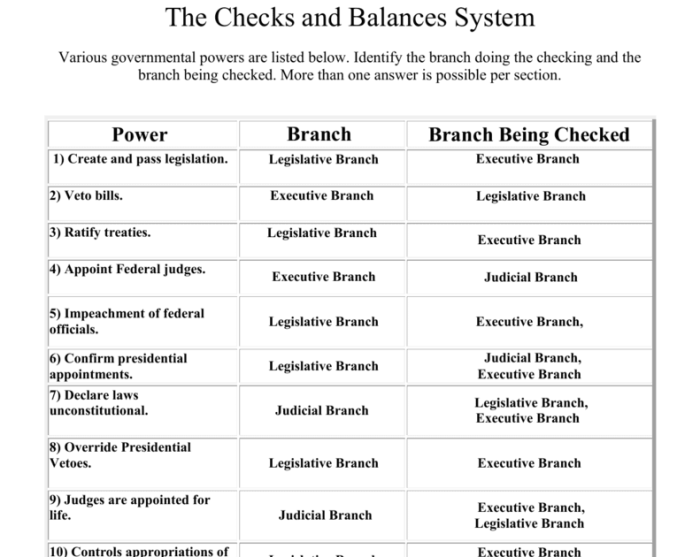The iCivics The Capable County Answer Key stands as an indispensable resource for navigating the intricacies of county governance. This comprehensive guide empowers players with the knowledge and strategies necessary to effectively manage their virtual county, fostering a deeper understanding of civic concepts and real-world decision-making processes.
Delving into the simulation’s multifaceted aspects, this guide provides a thorough examination of county management, citizen engagement, policymaking, collaboration, data analysis, and the historical context that underpins the simulation. Through engaging explanations and practical insights, players will gain a profound understanding of the challenges and opportunities inherent in county governance.
Key Features of iCivics “The Capable County”
iCivics’ “The Capable County” is an interactive simulation that teaches students about local government and civic engagement. The simulation is designed to be engaging and educational, and it provides students with a hands-on opportunity to learn about the different aspects of local government.
The main objective of the simulation is to help students understand how local government works and how they can participate in the decision-making process. Students take on the role of county commissioners and must work together to make decisions that affect the county.
They must balance the needs of different stakeholders and make decisions that are in the best interests of the county as a whole.
Educational Value
The simulation is a valuable educational tool because it allows students to learn about local government in a fun and engaging way. Students learn about the different roles and responsibilities of local government officials, and they gain a better understanding of how decisions are made at the local level.
The simulation also helps students develop critical thinking and problem-solving skills. Students must analyze information, consider different perspectives, and make decisions that are in the best interests of the county. The simulation also helps students develop teamwork and communication skills.
County Management in the Simulation
The iCivics simulation “The Capable County” provides players with an immersive experience in county management, covering various aspects of governance and decision-making. Players assume the role of county commissioners and are responsible for allocating resources, making policy choices, and managing the county’s finances.
Resource Allocation
County commissioners must allocate resources to meet the needs of the community. This includes funding for essential services such as education, healthcare, and infrastructure. Players must carefully consider the trade-offs between different spending priorities and ensure that resources are used efficiently.
Decision-Making
Players are faced with a range of decisions that impact the county’s development. These decisions include zoning regulations, tax rates, and environmental policies. Players must weigh the potential benefits and drawbacks of each decision and make choices that align with the values and goals of the community.
Financial Management, Icivics the capable county answer key
County commissioners are responsible for managing the county’s finances. This includes balancing the budget, setting tax rates, and managing debt. Players must ensure that the county has sufficient revenue to meet its obligations while also keeping taxes at a reasonable level.
Challenges and Opportunities
Running a county effectively presents both challenges and opportunities for players. Challenges include limited resources, competing interests, and unforeseen events. Opportunities include the ability to make a positive impact on the community, develop innovative solutions to problems, and learn about the complexities of local government.
Citizen Engagement and Representation

The iCivics “The Capable County” simulation effectively incorporates citizen engagement and representation through various mechanisms.
The simulation features a diverse population of constituents with varying needs and concerns. Players interact with constituents through regular town hall meetings and by addressing their petitions and concerns. Constituents can also provide feedback on player decisions, influencing the direction of the county.
Balancing Citizen Needs
Balancing the needs of different citizen groups is crucial for successful county management. Players must carefully consider the priorities of each group and make decisions that address their concerns while also maintaining the overall well-being of the county.
Policymaking and Lawmaking
The Capable County simulation offers players a hands-on experience in the policymaking and lawmaking process. Players can propose new laws, debate their merits, and vote to pass or reject them.
The policymaking process begins when a player submits a bill to the County Council. The Council then reviews the bill and decides whether to hold a public hearing. If a public hearing is held, citizens can testify in favor or opposition to the bill.
After the public hearing, the Council votes on whether to pass the bill.
If the bill is passed by the Council, it is then sent to the County Executive for approval. The Executive can sign the bill into law or veto it. If the Executive vetoes the bill, the Council can override the veto with a two-thirds vote.
The policymaking process in The Capable County is designed to be realistic and engaging. Players must consider the interests of their constituents, the potential impact of the bill, and the political realities of the Council.
Factors that Influence Policy Decisions
A number of factors can influence policy decisions in The Capable County, including:
- The interests of the player’s constituents
- The potential impact of the bill on the county
- The political realities of the Council
- The player’s own personal beliefs and values
Players must carefully weigh all of these factors when making policy decisions. There is no one right answer, and the best decision will vary depending on the circumstances.
Consequences of Different Policy Choices
The consequences of different policy choices can be significant. A well-crafted policy can improve the lives of citizens and make the county a more prosperous place. A poorly crafted policy, on the other hand, can have negative consequences for the county.
Players should carefully consider the potential consequences of their policy choices before making a decision. They should also be prepared to defend their decisions to their constituents.
Collaboration and Cooperation: Icivics The Capable County Answer Key

Collaboration and cooperation are essential to the success of any county in iCivics’ “The Capable County” simulation. Players must work together to achieve common goals, such as passing laws, building infrastructure, and providing services to citizens.There are many ways that players can collaborate and cooperate.
They can form alliances, share resources, and work together on projects. They can also communicate with each other through the game’s chat system and forums.
Challenges of Collaboration
Working with other players can be challenging. Players may have different goals, values, and priorities. They may also have different leadership styles. This can lead to conflict and disagreement.It is important for players to be able to resolve conflict and disagreement in a constructive way.
They must be willing to compromise and find solutions that work for everyone.
Benefits of Collaboration
Despite the challenges, collaboration and cooperation can have many benefits. Players who work together are more likely to achieve their goals. They can also learn from each other and develop new skills.Collaboration and cooperation can also help to build trust and relationships between players.
This can lead to a more positive and productive gaming experience.
Data Analysis and Reporting
The simulation incorporates robust data analysis and reporting features that empower players to make informed decisions. Players collect, analyze, and interpret data to gain insights into county operations, citizen needs, and policy effectiveness.
The data reporting system provides comprehensive dashboards that display key metrics and trends. Players can track performance indicators, such as citizen satisfaction, economic growth, and environmental sustainability, to assess the impact of their policies and initiatives.
Data Collection
Players collect data from various sources, including surveys, polls, and reports. They can also conduct research to gather information on best practices and emerging trends.
Data Analysis
Once data is collected, players use statistical analysis techniques to identify patterns, correlations, and trends. They can create visualizations, such as charts and graphs, to present data in a clear and concise manner.
Data Interpretation
Players interpret data to draw conclusions and make informed decisions. They identify areas for improvement and develop strategies to address challenges. Data analysis helps players prioritize initiatives, allocate resources effectively, and demonstrate the impact of their policies.
Importance of Data Analysis
Data analysis is crucial for evaluating progress and identifying areas for improvement. It provides players with a data-driven foundation for decision-making, ensuring that policies are based on evidence and not just assumptions.
Historical Context and Real-World Applications

The iCivics “The Capable County” simulation draws inspiration from the historical evolution of county governments in the United States. Counties emerged as administrative units during the colonial era, playing a vital role in local governance and service provision. Over time, counties have evolved to reflect the unique needs and characteristics of their respective regions, adapting to changing societal and economic landscapes.
The simulation accurately mirrors the real-world complexities of county government, including the interplay between elected officials, appointed administrators, and citizen engagement. It provides students with an immersive experience that enables them to understand the challenges and responsibilities involved in managing a county effectively.
Teaching Civics and Preparing for Active Citizenship
The simulation serves as a valuable educational tool for students to develop a comprehensive understanding of civics and prepare them for active citizenship. By engaging in the simulation, students learn about the different branches of county government, the roles and responsibilities of elected officials, and the importance of citizen participation in decision-making processes.
The simulation fosters critical thinking skills, encourages collaboration, and promotes problem-solving abilities. It empowers students to make informed decisions, understand the consequences of their actions, and appreciate the complexities of governing a county. By simulating real-world scenarios, the simulation prepares students to actively engage in their communities and make meaningful contributions as informed and responsible citizens.
FAQ Resource
What is the primary objective of the iCivics The Capable County simulation?
The simulation aims to teach players about the complexities of county governance, including resource allocation, decision-making, citizen engagement, and policymaking.
How does the simulation incorporate citizen engagement?
Players interact with constituents who represent diverse interests and concerns, requiring them to balance the needs of different groups and address their grievances.
What is the significance of collaboration in the simulation?
Collaboration is crucial as players work together to achieve common goals, highlighting the importance of teamwork and effective leadership in governance.
How does the simulation utilize data analysis?
Players collect, analyze, and interpret data to make informed decisions, demonstrating the value of data-driven decision-making in county governance.
What real-world applications can be derived from the simulation?
The simulation provides insights into the decision-making processes and challenges faced by county governments, preparing players for active citizenship and engagement in real-world governance.